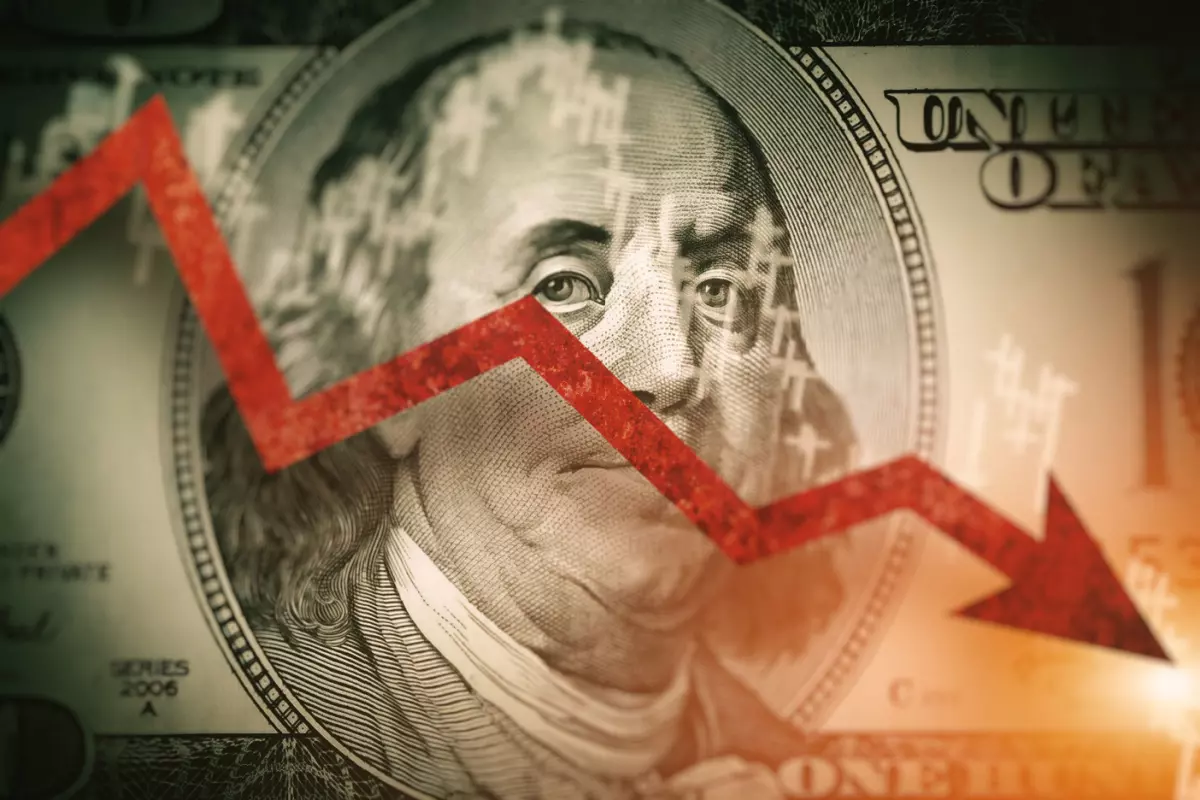Recession and the Stock Market: What Happens to the Stock Market in a Recession
The year 2007 saw the stock market at its peak, a bustling hub of optimism where investors watched their portfolios soar. Fast forward to 2008, and the picture dramatically changed. The once vibrant market faced a steep downturn, ushering in widespread talk of a recession. This shift from boom to bust opens up a compelling discussion: What happens to the stock market during a recession?
In the following sections, we’ll explore why markets typically dip during tough economic times and its impact on investors. This guide is designed for both new and seasoned investors, offering a clear understanding of the stock market’s behavior during recessions.
Stock Market During a Recession
A recession is a period when the economy slows down significantly, often defined by lower employment rates and economic growth. During a recession, the stock market faces numerous challenges, primarily due to declining consumer confidence and spending. This decreased spending can directly impact companies’ profits and their stock prices.
Historically, the average stock market decline during a recession was around 8.8%. A shift in investor behavior largely drives this trend, as many become cautious during recessions, selling off stocks to minimize risk. As more shares are sold, stock prices begin to decline, leading to further drops in the market.
For individual investors, a recession can feel like navigating through a storm. As the market fluctuates, it’s common to see a change in personal investment values. However, it’s also a time that can present unique opportunities. For those with a long-term view, investing in companies with strong financials and minimal debt can be a prudent strategy. Such companies, often in sectors less affected by the recession, like healthcare or utilities, might offer more stability and positive returns during these challenging times.
What Happens to Stocks In a Recession: Do They Go Down?
In a recession, it’s typical to see an overall decline in stock prices. Investors aiming to protect their investments may sell off stocks that they perceive as risky, contributing to a downward trend in the market.

But this general trend doesn’t apply uniformly across the board. For instance, industries such as energy, consumer discretionary, materials, and industrials typically face the largest market declines during recessions. On the other hand, sectors like healthcare and consumer staples are more resilient, often experiencing less negative impacts.
How a Recession Affects Investors
A recession can impact investors in several distinct ways. Here are some key effects:
- Increased Market Volatility: During recessions, investors often experience heightened volatility in the stock market. On average, stocks have been down 11% midway through each recession. Rapid and frequent changes in stock prices characterize this increased volatility.
- Reduced Investment Returns: Returns on investments are generally lower during a recession. This is attributed to decreased business profits and the overall economic slowdown. The average decline in the stock market during recessions is around 24%, indicating a significant potential drop in investment values.
- Shift in Asset Performance: Different asset classes perform differently during recessions. For example, while stocks might lose value, bonds have been shown to outperform equities during recessions. In the 2008 financial crisis, bonds significantly outperformed equities. U.S. Treasury bonds saw an increase of about 11.60%, in stark contrast to the S&P 500, which fell by approximately 36.49%.
- Challenges in Portfolio Management: The variability in market performance necessitates a more attentive approach to portfolio management. Investors may need to adjust their strategies to adapt to the changing market conditions, balancing their portfolios to mitigate risks and capitalize on potential opportunities.
- Psychological Impact: Recessions often bring stress and uncertainty, which can lead to emotional decision-making like panic selling. This behavior can exacerbate market downturns and adversely affect individual investment strategies.
- Opportunity for Strategic Investment: Despite the challenges, recessions can also present opportunities for strategic investments. Assets may be available at lower prices, allowing investors to purchase valuable stocks or other investments at a discount, which is especially beneficial for those with a long-term investment perspective.
Should I Avoid Investing During a Recession?
Deciding whether to invest during a recession can be tricky. While it might seem safer to hold off on investing, recessions can offer unique opportunities for savvy investors. During these times, the prices of some high-quality stocks may drop, presenting a chance to buy valuable assets at a lower cost. This can be particularly advantageous for long-term investment strategies.

However, make sure to approach investing during a recession with a well-thought-out plan. Here’s how you can strategically invest during a recession:
- Research is Key: Take time to understand the market. Look into which sectors and companies have historically remained stable or recovered well after past recessions. Information can be found on financial news websites, stock market analysis platforms, and economic reports. Look for data on how different sectors and companies have performed during past recessions.
- Focus on Fundamentals: Consider companies with solid fundamentals, like strong balance sheets and good management. These companies are more likely to weather economic downturns. Company fundamentals can be reviewed in annual reports, financial news articles, and investment research platforms. Focus on factors like balance sheets, earnings reports, and management quality.
- Diversify Your Investments: Spread your investments across different sectors and asset types. Diversification involves mixing various asset types (stocks, bonds, real estate, etc.) and sectors (technology, healthcare, utilities). Each type offers unique benefits – stocks for growth potential, bonds for stability, and real estate for income generation. This can also help reduce risk, as not all areas are equally affected by a recession.
- Consider Your Risk Tolerance: Be honest about how much risk you’re comfortable taking on. Recessions can be unpredictable, so choose to invest within your comfort zone.
- Seek Professional Advice: If you’re unsure, talking to a financial advisor can provide personalized guidance based on your financial goals and situation. Financial advisors can be found through financial institutions, independent firms, or online advisory services. Choose advisors with relevant experience and credentials suited to your financial goals.
Remember, investing during a recession isn’t about quick wins. It’s about carefully evaluating opportunities and making decisions that align with your long-term investment goals. With the right approach, a recession can be a time to strengthen your investment portfolio for future growth.
How to Invest During a Recession
Investing during a recession may seem daunting, but it can be an opportunity for strategic growth with the right approach. Here’s how to navigate these times:
Explore Safe-Haven Assets
Government bonds and precious metals like gold and silver are considered safer during downturns. Historically, gold has often increased in value during market crises, such as during the 2008 financial crisis when its price rose from around $730 to over $1,100 per ounce. In addition, government bonds are backed by the government, offering more stability than stocks.
Look for Recession-Resistant Sectors
Utilities, healthcare, and consumer staples typically remain in demand, even in downturns. For example, during the 2008 recession, these sectors saw comparatively less decline.
Reassess Your Portfolio
Reassessing your portfolio ensures it is in line with your risk tolerance. It’s about checking if your investments align with your financial objectives and how comfortable you are with market fluctuations. By diversifying your investments across different asset types, you can reduce the risk of significant losses from any underperforming investment.
Stay Informed and Flexible
Follow reliable financial news from sources like The Wall Street Journal, Bloomberg, or CNBC. Staying informed and flexible enables quick responses to ever-changing market conditions. Reliable financial news and real-time updates from investment apps equip you with the necessary insights to adjust your portfolio promptly, helping you manage risks and capitalize on new opportunities as they arise.
How Long Do Recessions Last?
The duration of a recession varies, but historically, they have lasted from a few months to over a year. For instance, the 2008 financial crisis led to a recession that lasted about 18 months, while the early 2000s recession lasted about eight months.

While data suggests that many recessions are relatively short-lived, these economic downturns are complex. The severity of a recession can influence how long it takes for the market to recover. As a result, while some recessions may be brief, others might require a more extended period for recovery and market stabilization.
Final Thoughts
The journey through a recession in the stock market, as seen from the early 2000s to the late 2000s, reveals key insights. While stock prices generally fall during recessions, not all sectors are equally affected. Smart investment strategies during these times, such as exploring recession-proof business ideas, include focusing on stable sectors like consumer essentials, diversifying with bonds and precious metals, and keeping a long-term perspective.
Understanding the typical duration of recessions and what happens to the stock market during a recession helps investors plan better. Staying informed and adaptable allows for strategic decisions that can lead to portfolio growth post-recession. Ultimately, while challenging, a recession can be an opportunity for thoughtful investment and financial resilience.
Table of Contents
- Stock Market During a Recession
- What Happens to Stocks In a Recession: Do They Go Down?
- How a Recession Affects Investors
- Should I Avoid Investing During a Recession?
- How to Invest During a Recession
- Explore Safe-Haven Assets
- Look for Recession-Resistant Sectors
- Reassess Your Portfolio
- Stay Informed and Flexible
- How Long Do Recessions Last?
- Final Thoughts